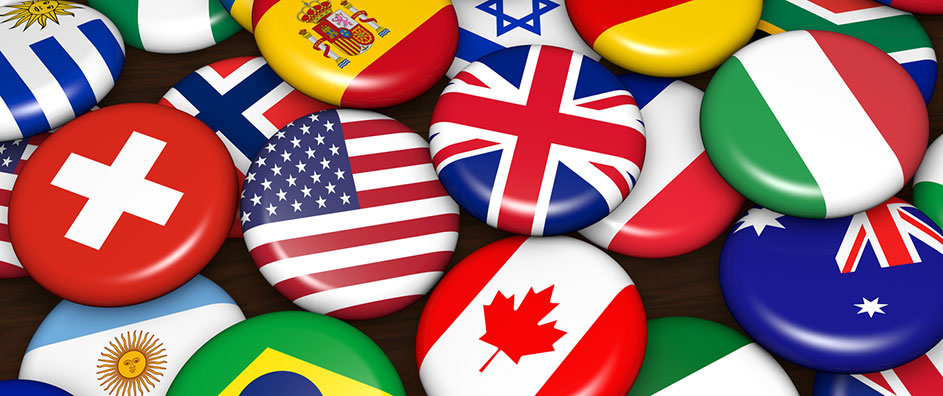In an era marked by remarkable complexity and rapid globalization, the concept of patriotism has evolved considerably. The burgeoning idea of “Big Patriotism,” paired with the tenets of true federalism, offers a pioneering framework for addressing the multifaceted challenges facing the contemporary world. This discussion invites a fresh perspective on how embracing broader identities intertwined with local governance might foster unity among nations, while simultaneously nurturing a deeper sense of belonging and responsibility.
The essence of Big Patriotism transcends the traditional confines of national identity, rooting itself in a collective commitment to human flourishing. Rather than prioritizing the interests of one nation above others, Big Patriotism advocates for an expansive view that encompasses the global community. It is a call to appreciate the rich tapestry of humanity, recognizing that diversity should not lead to divisiveness, but instead fuel a collective mission toward peace and collaboration.
This shift in perspective is particularly salient in a time when globalization presents both opportunities and challenges. The interdependence of nations necessitates a robust framework for cooperation, where true federalism emerges as a vital component. Federalism, in its ideal form, not only allows for self-governance at local levels but also fosters collaborative structures between various governing bodies, thereby creating an intricate network of governance that honors regional identities while simultaneously promoting a unified vision.
To appreciate fully the implications of federalism in light of Big Patriotism, it is crucial to dissect the fundamental principles underlying both concepts. Big Patriotism advocates for universal principles that embrace inclusivity, compassion, and mutual support. In practical terms, this leads to policies that emphasize social justice, environmental sustainability, and emotional well-being—elements that resonate with the ethos of federalism.
True federalism empowers regions and communities to exercise autonomy while contributing to the greater whole. Consider the interplay between local governance and international collaboration. A federal system allows local entities to tailor policies that reflect their unique socio-cultural contexts, while also providing a platform for shared interests at a global scale. This harmonization of local and global perspectives encourages regions to share best practices, innovative solutions, and collaborative ventures.
Moreover, through the lens of Big Patriotism, the concept of allegiance expands beyond geographical borders. Citizens are inspired to engage with global challenges—such as climate change, poverty, and conflict resolution—from a standpoint of collective responsibility. This perspective is transformative; it presents patriotism not as a divisive force, but as a nurturing sentiment that fosters global solidarity.
Education plays a crucial role in nurturing this novel understanding. By reshaping curricula to emphasize global citizenship, diverse cultural histories, and interconnectedness, societies can cultivate individuals who embody the principles of Big Patriotism and federalism. A united world requires not just polices but also citizens who are educated and energized to contribute positively to humanity’s shared future.
Furthermore, embracing federalism within a framework of Big Patriotism can facilitate more equitable distribution of resources across regions. This approach counteracts the often-observed phenomena of wealth concentration in certain areas, leading to dissatisfaction, unrest, and disparity. A true federalist model encourages equitable development strategies that prioritize regions needing the most assistance, thus promoting social cohesion and diminishing regional grievances.
The global community grapples with issues that cannot be resolved through isolationist or ethnocentric approaches. The interconnected crises of our time—from pandemics to environmental degradation—require solutions rooted in collective action. Federalism provides the scaffolding for effective governance across borders, while Big Patriotism ensures that such governance remains grounded in humanistic principles, with the well-being of every individual as the ultimate goal.
We must also consider the transformative power of technology in facilitating this synthesis. Digital platforms that enable real-time communication and engagement encourage a shared sense of purpose among diverse groups. This technological evolution complements the federalist structure by making it simpler for communities worldwide to collaborate and innovate around common objectives. Thus, the synergy between Big Patriotism and true federalism becomes increasingly relevant in our digital age.
Critics may question the feasibility of implementing such expansive ideals amidst the political fragmentation and cultural schisms that characterize the current global landscape. However, the implementation of Big Patriotism, paired with the principles of true federalism, does not imply the absence of local identity or autonomy. Instead, it proposes a synthesis that increases cooperative governance and mutual understanding while respecting diverse local cultures.
This paradigm shift invites renewed dialogue and cooperation among nations. It beckons leaders to engage thoughtfully, recognizing that the health of their own communities is inextricably linked to the stability and prosperity of the global community. By embracing Big Patriotism, political leaders can navigate the complexities of modern governance, fostering connections among nations while honoring the individual characteristics that define them.
In conclusion, the integration of Big Patriotism and true federalism signifies a potential renaissance in how we approach global issues. It weaves together identity, responsibility, and interdependence into a coherent tapestry that champions collective well-being. As humanity stands on the precipice of both vast challenges and unprecedented opportunities, the call for embracing a greater cause—one that transcends borders and unites us in shared aspiration—has never been clearer. This is not merely an academic exercise; it is a transformative vision demanding urgent realization.
